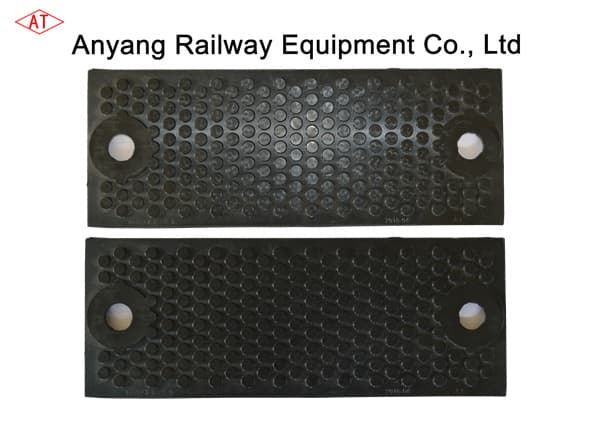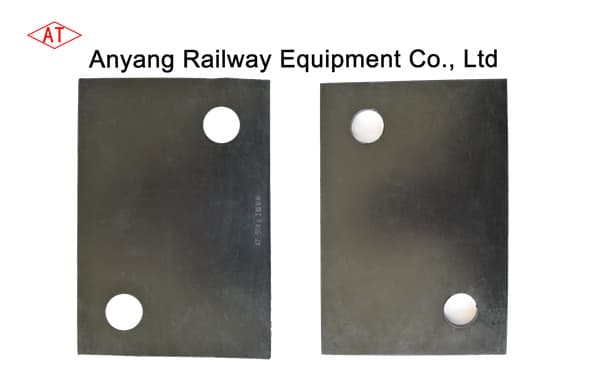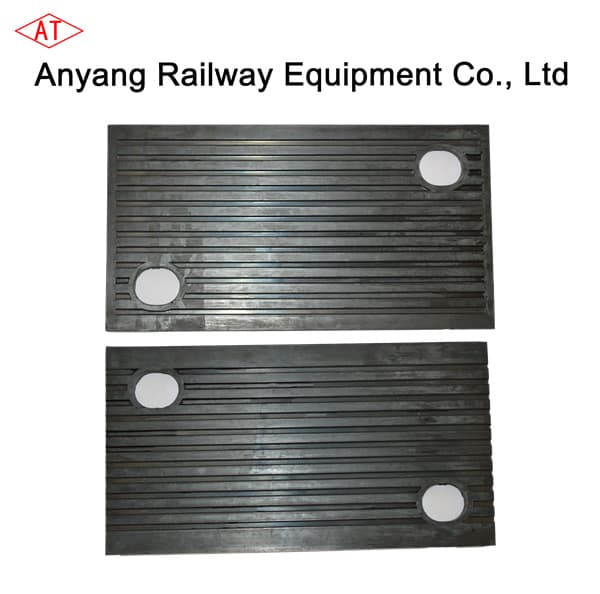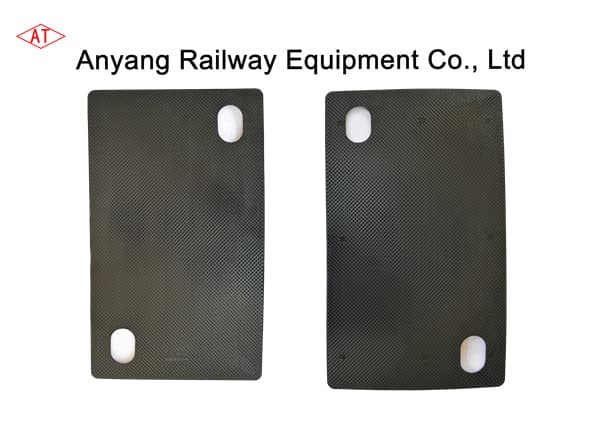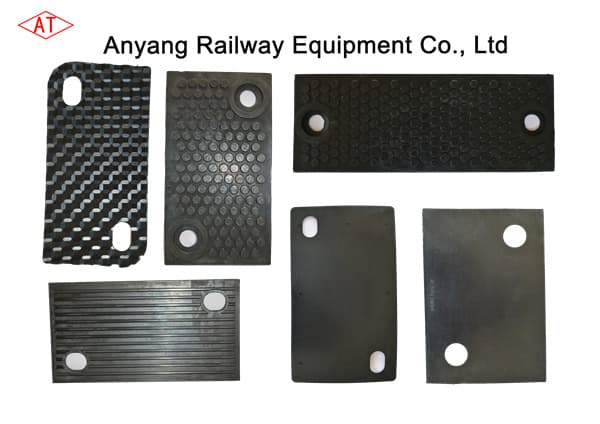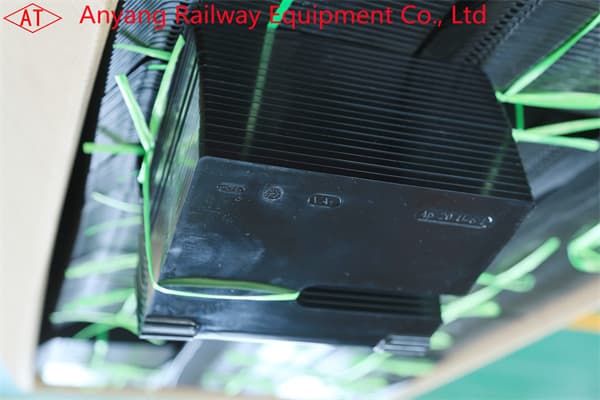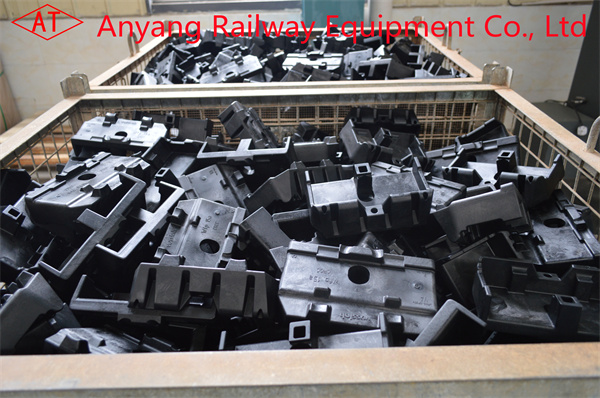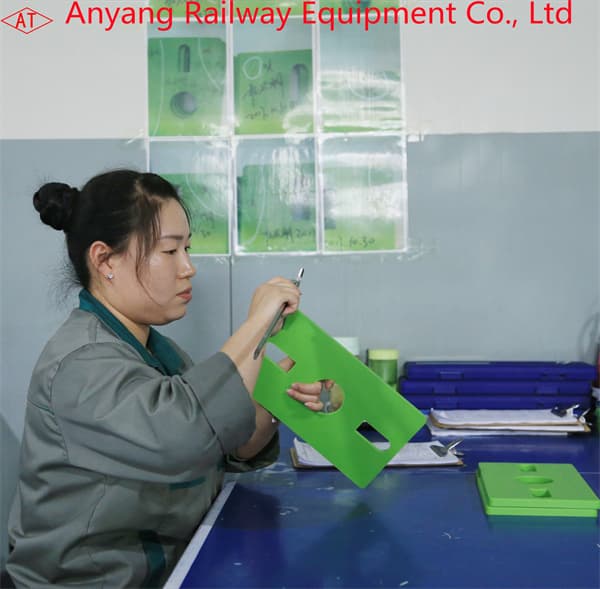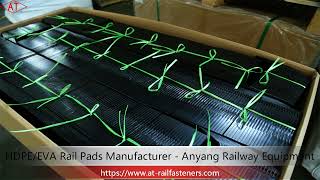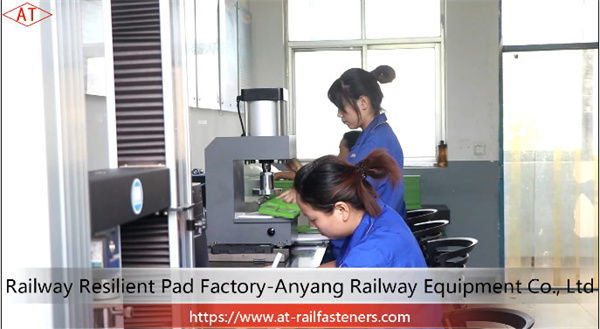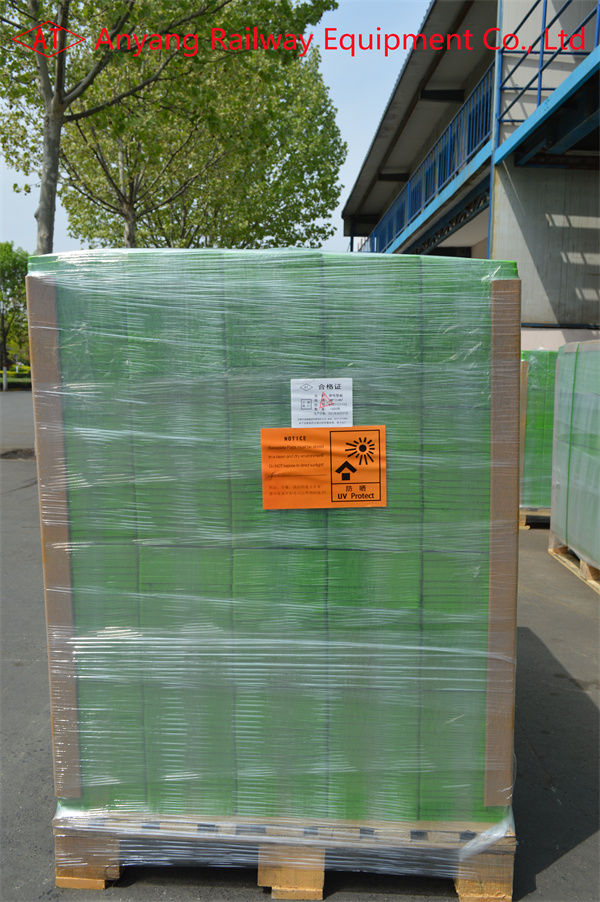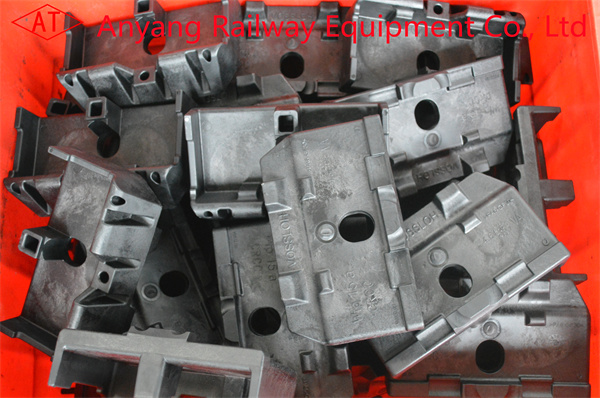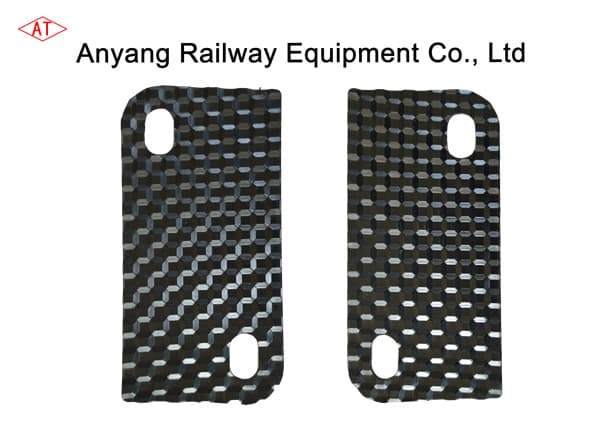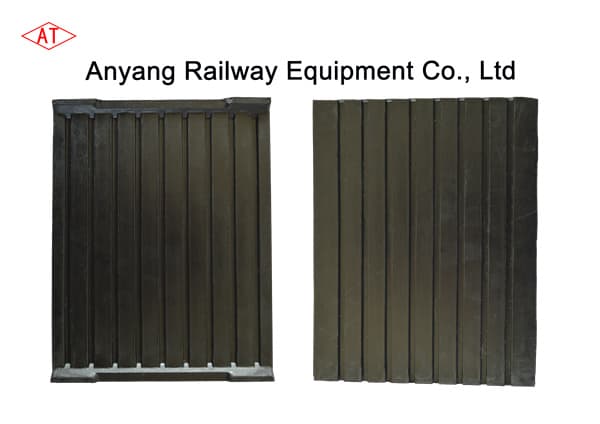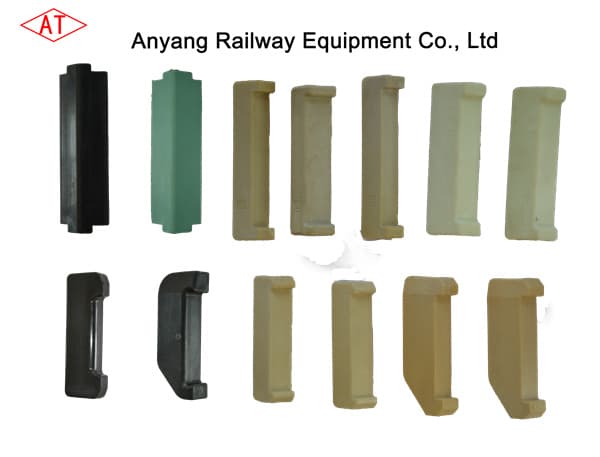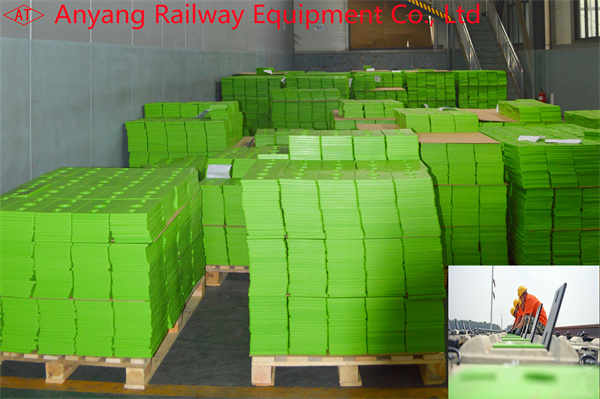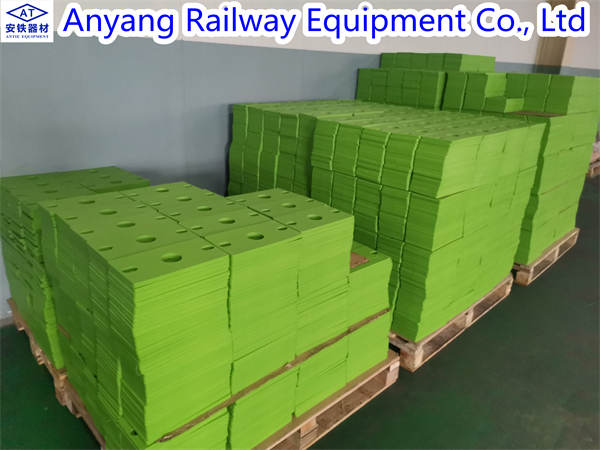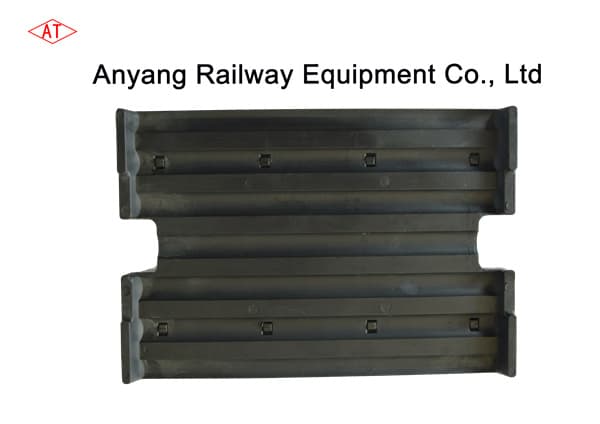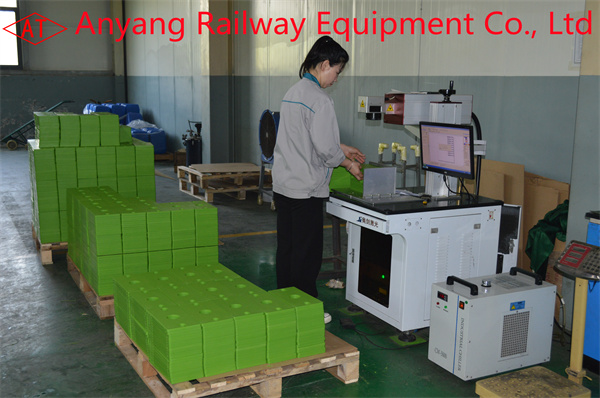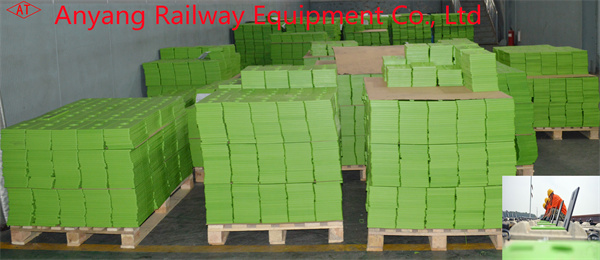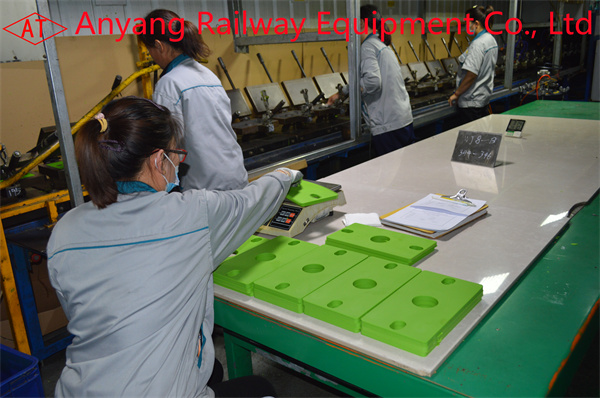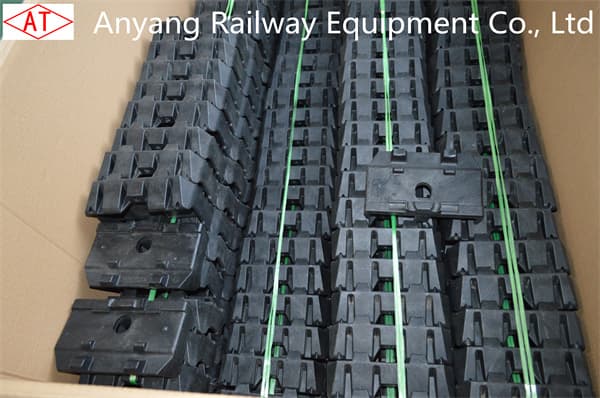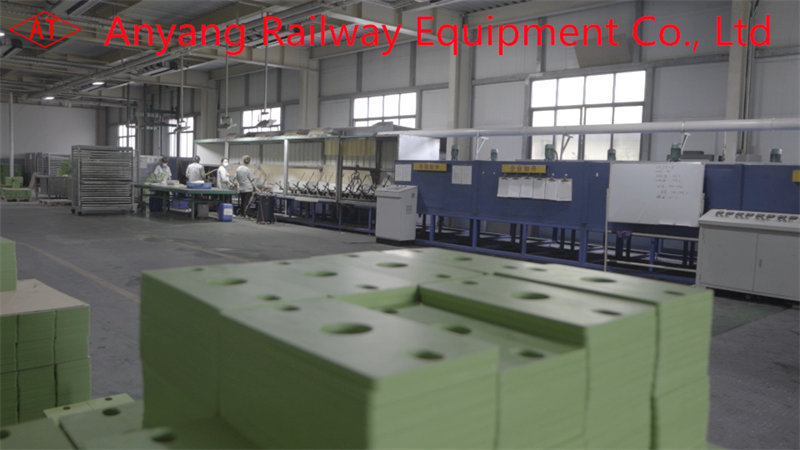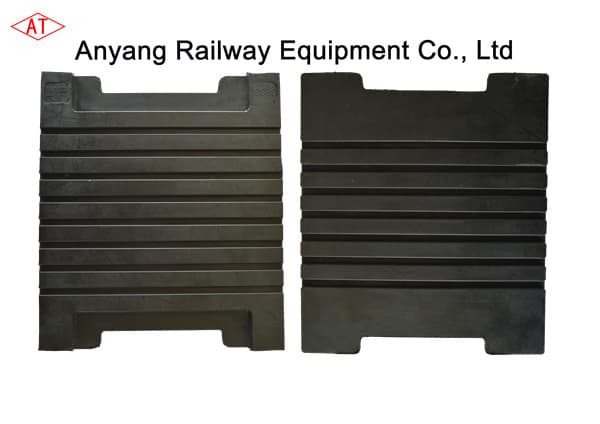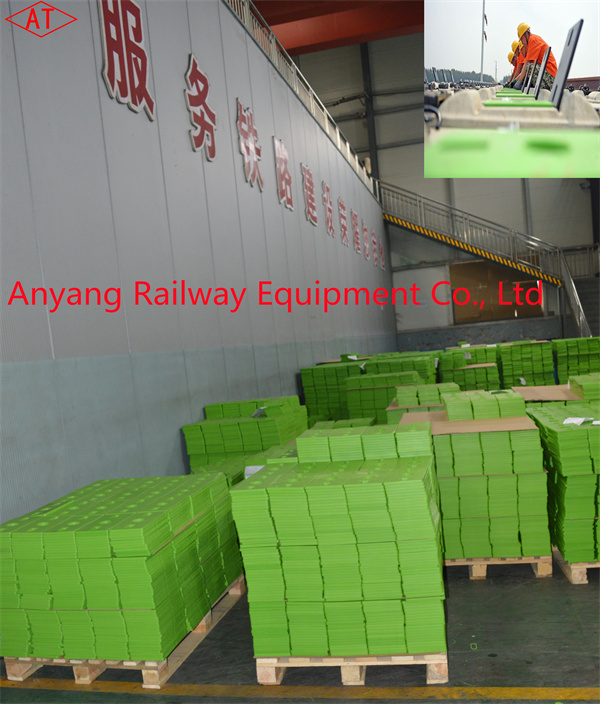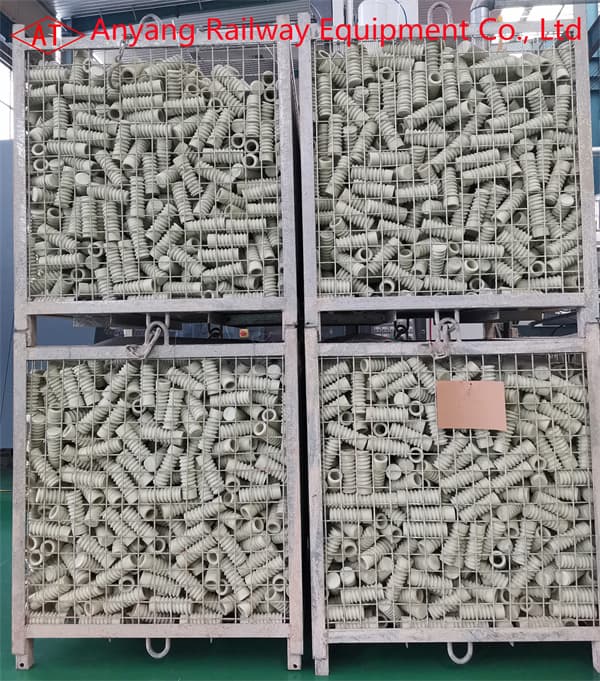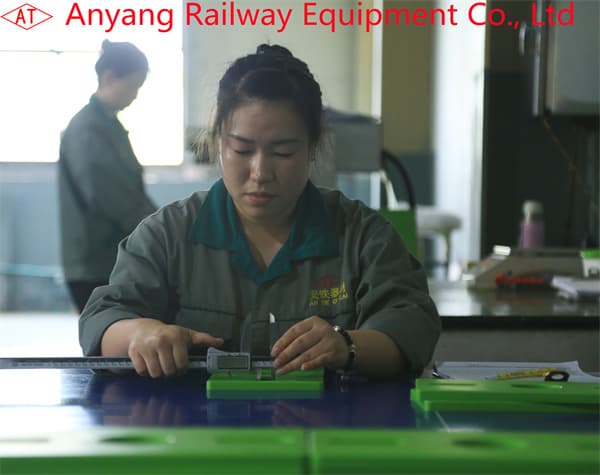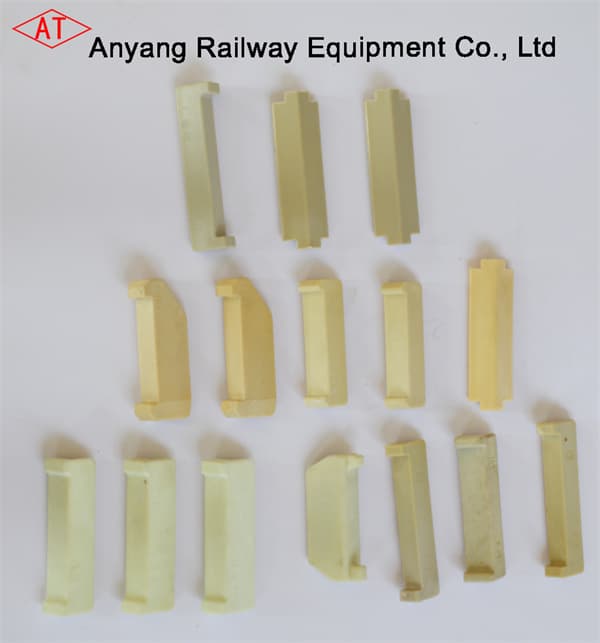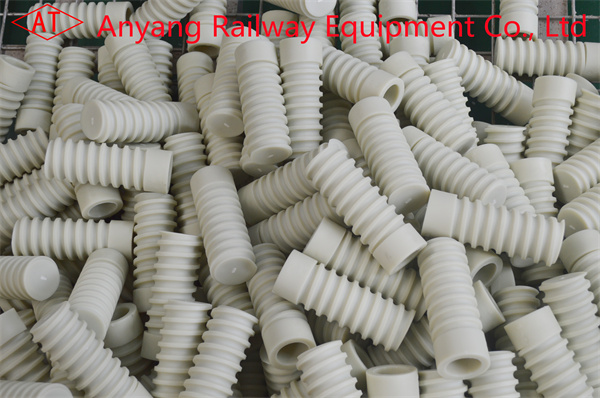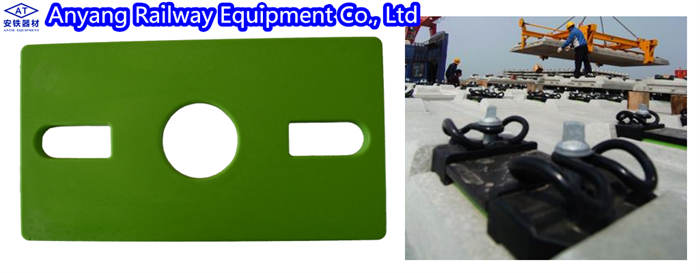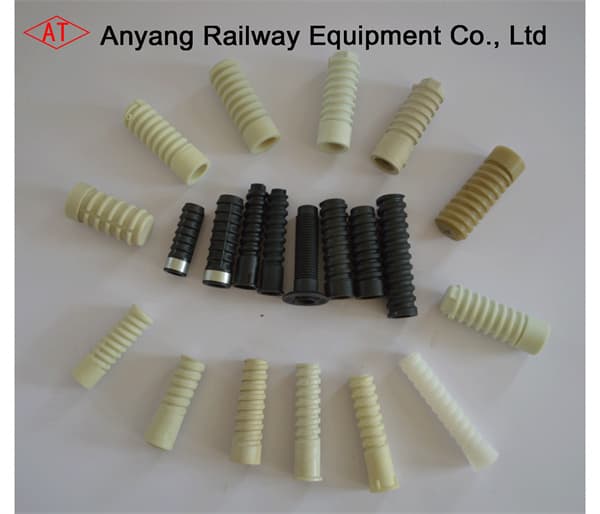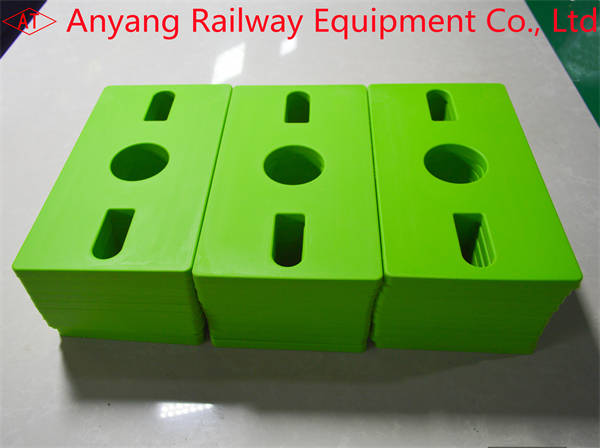The rail rubber pads are made of elastic polyurethane mats which are laid under iron base plates to prevent railway sleeper abrasion and the sleeper being crushed under the rail foot.
The railway rubber rail pad is necessary and essential in reducing shock and vibration in a rail system. The rubber rail pads are normally designed to a specified load-deflection characteristic. The initial stiffness of the rail pad is designed to be low so that that their deformations under the clips toe loads is quite substantial.
After the rubber pads are laid under the iron tie plates, there are some features:
- Reduction of noise and vibration.
- Absorption of uneven contact surfaces between rail and support.
- Load distribution over a larger surface.
- Elimination of load concentration and the resultant fatigue stresses.
- Centering of loads on the supporting element.
- Good sealing between the bottom of the rail and the top of the support.
- Improved passenger comfort.
- Extended track life.
- Extended ballast life.
The railroad rubber pas will be exposed to the atmosphere for a long time, so it is required to have good resistance to natural aging, cold, and heat resistance.
Anyang Railway Equipment Co., Ltd(AT) has a professional HDPE/EVA/Rubber rail pads production line to produce various high-quality elastic rail pads for rail fastening systems in normal railway, heavy load railways, and metro lines, etc.
- Rubber Pads
| Technical Parameter | Unit | Value |
| Stiffness | KN | 90-130 |
| Hardness Shore A | ℃ | 72-80 degree |
| Electronic Resistance | Ω | ≥ 106 |
| Tensile Strength before Aging | Mpa | ≥12.5 |
| Elongation before Aging | % | ≥250 |
- HDPE Rail Pads
| Technical Parameter | Unit | Technical Requirement | Value |
| Density | g/cm3 | 0.95-0.98 | 0.95 |
| Tensile Strength | Mpa | ≥19 | 19 |
| Elongation | % | >80 | 150 |
| Melting Point | ℃ | 170-190 | 190 |
| Insulation Resistance | Ω | ≥1×1010 | 3.5 ×1010 |
| Hardness | A | ≥98 | 98(A) |
- EVA Rail Pads
| Technical Parameter | Unit | Technical Requirement | Value |
| Density | g/cm3 | 0.95-0.98 | 0.95 |
| Tensile Strength | Mpa | ≥15 | 16 |
| Elongation | % | >500 | 550 |
| Melting Point | ℃ | 170-190 | 170 |
| Insulation Resistance | Ω | ≥1×1010 | 5.0 ×1010 |
| Hardness | A | ≥90 | 92(A) |

